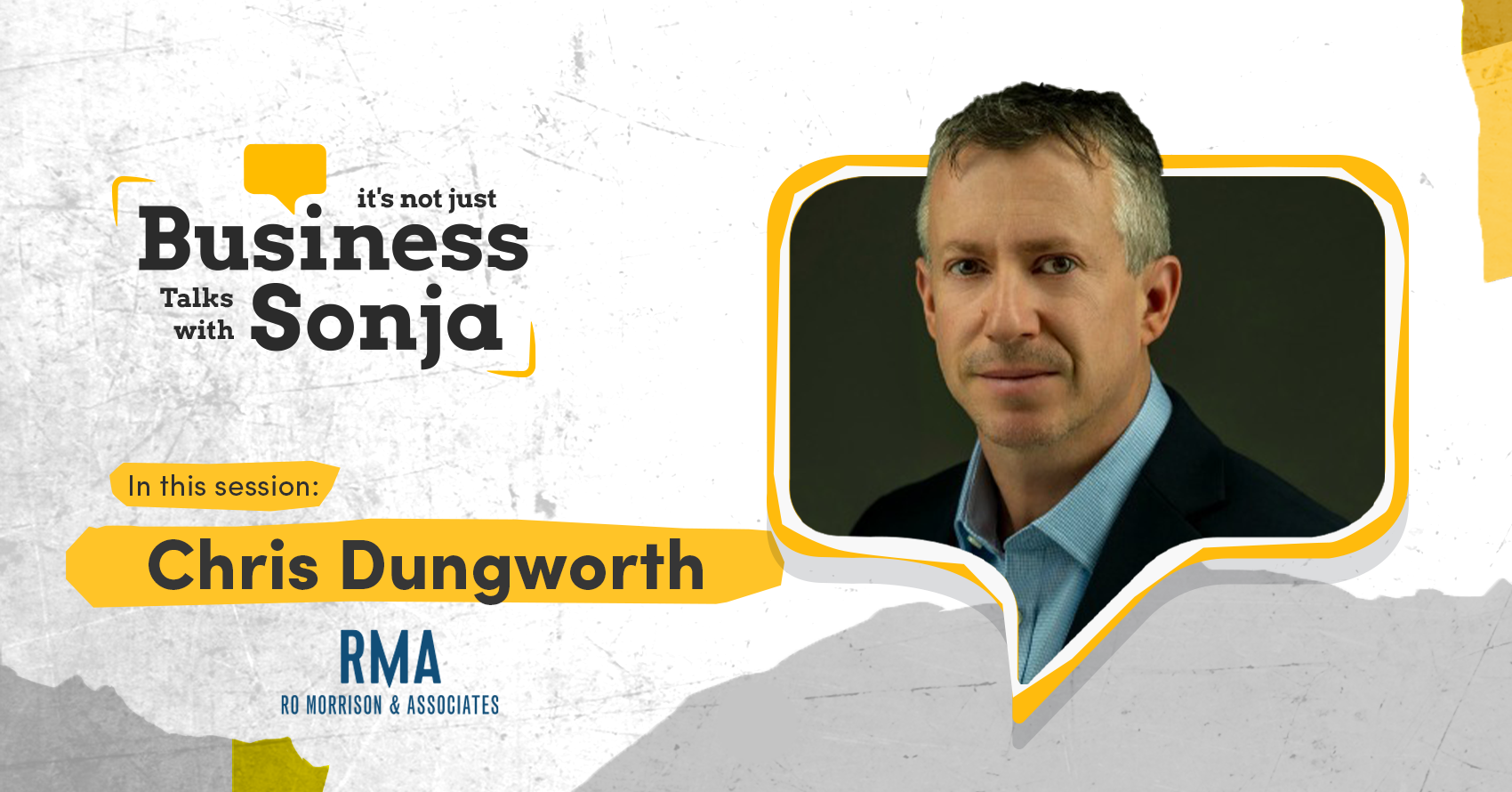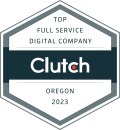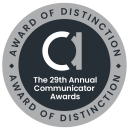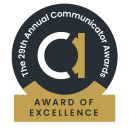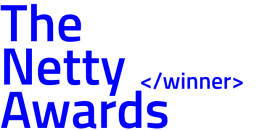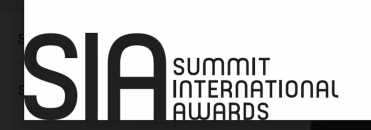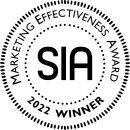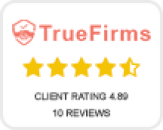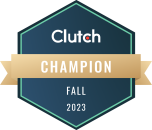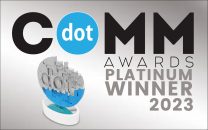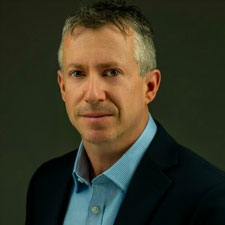
Chris Dungworth is the Managing Partner at Ro Morrison & Associates, a speakers bureau designed exclusively for the financial services industry. Chris has over 20 years of experience in the Financial Services Industry. Before co-founding Ro Morrison & Associates, Chris held multiple leadership positions at Allianz Life, including Chief of Staff and Sr. Director of Sales.
Here’s a glimpse of what you’ll learn:
- Chris Dungworth talks about how he finds dynamic speakers that bring high ROI to events in the financial services industry
- How do Chris and his team deliver value long before and after the actual event?
- Chris dives into the event planning process and shares several key steps
- The pandemic’s impact on the event planning industry and 2022 meeting trend predictions
- Designing experiences that will continue to impact attendees months after the event
- The speaker’s role at an event
- Teaching in a way that creates lasting change
In this episode…
You just attended a conference and walked away totally blown away. The speakers sparked inspiration inside of you that will carry through your work in the coming weeks. How did the organizers create an event of such magnitude?
There’s a lot more at hand than just the presentation. Before the event, organizers ramp up the excitement and anticipation. They’re preparing the audience for an amazing experience. And following the conference, you can expect they’ll continue to deliver valuable content to cement what you learned at the event. It sounds like a lot of work and planning. What if your team isn’t prepared to orchestrate such an event?
In this episode of It’s Not Just Business Talks with Sonja, Sonja Anderson sits down with Chris Dungworth, Managing Partner at Ro Morrison & Associates, to discuss how he is changing the conference experience one keynote speech at a time. Chris talks about the process of planning dynamic events, how to create event anticipation, and how to create impact in the months following an event.
Resources mentioned in this episode:
- Chris Dungworth on LinkedIn
- Ro Morrison & Associates
- Chris Dunworth mobile 612-747-6200
- Sonja Anderson on LinkedIn
- zo.agency
Sponsor for this episode…
This episode is brought to you by zo agency, a tight-knit team of online and offline marketing pros.
At zo, we serve as the marketing department for small to mid-sized businesses.
We know that marketing and advertising can be demanding and time-consuming — that’s why we make the process so easy-breezy that you don’t have to sacrifice precious time to get the results you need.
To learn more, visit zo.agency or call (541) 633 4725.
Episode Transcript
Sonja Anderson 0:04
Welcome to It’s Not Just Business Talks with Sonja, where we get down to the real business of How Great Leaders dug through their own trenches and climbed some epic mountains to get where they are today. Now let’s get started with the show.
I’m here today with Chris Dungworth who has over 20 years experience in the financial services industry. Prior to founding, excuse me, co-founding Ro Morrison and Associates, a speaker’s bureau exclusively serving in the financial services industry. Chris held multiple leadership positions at Allianz Life, including Chief of Staff and Senior Director of Sales. Did they get any of that wrong? Or did they get it right, Chris?
Chris Dungworth 0:45
Allianz Life, one fine German company. It’s not a problem.
Sonja Anderson 0:54
So Allianz Life and the way that I read it immediately was Allianz is that is that an American but you’re saying a German company? Are they based in America? Yes. Or?
Chris Dungworth 1:02
Yeah, they have a Minneapolis base. From that standpoint, there is an AllianceBernstein?
Sonja Anderson 1:08
Yeah, we’re fine. If there’s a way for me to trip over something I will. So just so everybody knows, I always try to find I mean, I actually had to make sure that Ro Morrison wasn’t aro Morrison, because you know, how some how with that with those letters, it could be the ARO. Absolutely. Tell me, Chris. Now we’ve known each other a few years. So. So I know. But just tell me what is Ro Morrison? Exactly. Who’s the kind of person that would contact you or tell us? Can you tell us a little bit about about that background?
Chris Dungworth 1:38
So yes, so Ro Morrison in his most basic, you know, form or a speaker’s bureau, right, really exciting. That’s really obviously, as you can imagine, not what makes us unique, even serving the financial services, I would say is not what makes us unique. But I think the thing that we’re really most proud of, is we really partner with our clients, we partner with speakers to really try to deliver a return on investment. Okay, and so we kind of take more of what I’ll call a sales approach to partnering with clients and other speakers bureaus, or as I like to say, I’m not in the business of schlepping speakers, right. Client, his 20 speakers think, I don’t care, let’s all move on with our lives, right, much as how do we build out a process? Right? You bring in a speaker, what do you what do you really want to solve? And how do we how do we work backwards from from that? So that’s really a kind of a little bit of a stake in the ground, if you will.
Sonja Anderson 2:40
So let’s just for me, who’s a dummy, and I’ve never hired a speaker, I have, um, I have worked with foundations where we have brought in authors, you know, well, you know, Pulitzer Prize winning authors, and you know, when we say, okay, we’d like to bring in an author, the agents will bring, and we we have this budget, so we can’t we can’t go we can’t do the $100,000. Author, we can do the $20,000. Author, what’s our opportunity here? Yeah. Would you say it’s a little bit like that, except for what I heard you say is, they say, All right, so Neil, what’s your goal with this author? What kind of people do you want that author to talk to? What kind of you know, is that is does it get nitty gritty? Right,
Chris Dungworth 3:18
absolutely. Right. So I mean, really, when you think about it, right? I mean, we do and we actually do work with a number of authors. Oh, great at all levels from that. 20,000 to that 100,000. Yeah. Right. I mean, we have access to anybody, right? We have we have partnerships with much larger speaker bureaus. But you’re spot on, right? You want to bring in a speaker to get the topic for a moment doesn’t really matter, right? Where do I Where do I go? So one of the things that we really pride ourselves on is you call me, you call the speaker, same price, so we have no fee. Right? And that’s, that’s really important to us, as part of kind of our speaker integrity. And that’s just that that’s our business model. Not everybody wants to have ADD, they add on fees, that’s fine. But it becomes okay. But what what are we trying to solve? Right? What is it you bring in the author? So what now? What is one of that there’s an expression from somebody that I work with, what is it? What is what is most important? And if I if I take it a step further, and I say what is really, and this is something that, you know, we’re working on with you guys, right, that just really came into fruition? The last few weeks. What if what is my line in the sand as a speaker? Mm hmm. And it applies to really any event. But there’s five stages of any event, right? Yeah. Tell me Oh, so we’ve got your author, right. We’ve picked the author. Okay. Right. And let’s say the event is a month a month out. The first thing, right, how are we going to entice the audience? How are we going to get them excited, right. How do we create anticipation, right because we don’t want to just bring going to speak, we want to create an experience. Sure, yeah. Great. What are we going to do as a speaker? You know, this is a speaker, the author, you know, going to do a video why? What are they willing to do? Besides just themselves? Everybody’s a little bit different? Sure, right. As we get a little closer, right, what does that enter phase? Now look like? What can we send the people that have, you know, that said, Hey, we’re gonna come? What can we give them something, again, something of value, right? And you can picture this going to a conference, you can picture this again, for any any event right? Now, then we have the actual event, the event itself, right? And, you know, the speaker is going to give a presentation on whatever that whatever that topic is. Right? The audience is sitting there, they’re enjoying, hopefully, they’re learning, right? And then there’s, and then that’s really kind of what the Engage phase. One thing that we really harp on, that we get pretty maniacal on is is called the exit phase, the last 90 seconds, what does that speaker going to say, in the last 90 seconds? That’s gonna set up? But what happens next? Is it nothing? Are they gonna walk off stage? And we’re done? Huh? Is it gonna be a book signing? Is it gonna be? It could be anything, right? But just think about that those last 90 seconds? And then what’s gonna happen, you know, over the next six weeks, and I think, what is the audience going to do? So it’s, that’s really kind of how we, how we look at the world, whether it’s in it again, it doesn’t matter. It could be training, it could be speaking, it could be, you know, you name the topic, right? Anything from motivational or in my world, a lot of practice management for financial professionals, it’s all kind of the, the process, if you will, is the same what you as a client want as an outcome could be different, what the speaker is willing to deliver could be a little bit different.
Sonja Anderson 6:58
And and assuming that there’s a difference in sort of the overarching or long, long term outcome, because otherwise, why would a client care about that? If, if the if the output is the same, we got the speaker, the audience was there, we had a good time everybody went home done. What makes this approach and this unique approach different such that like a client says, oh, yeah, no, that’s, that’s the route I would rather take
Chris Dungworth 7:22
It’s interesting, right? Because that really goes into the conversation up front, right? What is the outcome? Six, your point? And everybody can be a little bit different, right? Somebody might say, You know what, look, Chris, shut the bleep up. Here’s all I want. I want a speaker. Don’t embarrass me, right? Just don’t embarrass me. Give me a good hour. I got plenty of other things to do. Right? I don’t want to I don’t want to do more. Right. We got this is all we want. This is what we’re used to. This is what the industry does. We all want to do at the same events over, I’m going to move on to something else, right? Yeah, that’s okay. Look, I’m okay with that. At least we’ve had the conversation. But for example, it might be, again, I’ll go back a little bit more to my world, right, I’ll go back to financial advisors, and a roomful of financial advisors. And let’s say we’re doing a keynote presentation on referral training. Okay. It’s super exciting, right?
Sonja Anderson 8:19
I love it can’t wait, actually, I would go to that. would go to that.
Chris Dungworth 8:23
You know, and it will, it applies to any business, right? How do you get how do you get referrals, right in terms of your business, my business, maybe a lot of people that are listening to this, um, there’s only so much you can do in a keynote. And what I find that happens a lot in that conferences, right? Or even in, even in, I’ll just call smaller conferences, right? There’s a lot going on. So you give a presentation. Everybody’s excited. He get back to your office, what happens fire drill, fire, drill, all these good intentions, and now out the window and nothing’s happened. So the exit phase that lasts 60 to 90 seconds is going to tee up, what is going to happen in the next six weeks, we’re going to do a post webinar training, we’re gonna we’ve got some videos, we’ve got whatever it is, that is going to take what is been delivered during that, whatever 45 minutes. We’re gonna we’re gonna turn it into action. Mm. So you know, my whole thing is how do I take one day? How do I take that live session and really work you know, four to six weeks pre to create excitement, and four to six weeks post to actually accomplish.
Sonja Anderson 9:47
This is your what your organization does. This is
Chris Dungworth 9:51
this is this is what yeah, this is really how we our belief system right now is the as you can imagine, there’s nothing proprietary, but it comes back to It comes down to two things. Right? And, you know, again, I get I’m very fortunate I work with, I do get the opportunity to work with the best people in the world at what they do. Mm hmm. And what if I, if I take a look and say, What have I learned from that? Right? process? Process process, right? not sexy. But it’s what gets results? Sure. So if I can take and create a process that’s going to drive the right outcome. And then I think the other big thing is how do you create experiences? How do you create a better experience? Because that’s ultimately what we all want. And that’s what people are going to remember. So again, if I go back to, let’s take your author, right? And we said, Okay, this author is going to come in, we’re not going to do anything on the front end. You know, the audience may know who the speaker is, or the author is, but we haven’t sexed it up, right? And then the presentation, okay. How do we how do we turn that right? How do we say, What would Disney do? Right? How would Disney run? Right? What does that experience look like? So the audience leaves and goes, Oh, my God, that was amazing. Conference was phenomenal. I loved everything about it. And there’s a lot more than just that. Just that presentation. Some kind of process. Plus experience. Yeah, is really where we want to we want to try to drive to
Sonja Anderson 11:29
I have a little note here. A little birdie told me and I’m curious about what it means how your five phases apply to Valentine’s Day of all things
Chris Dungworth 11:37
yes, there’s, well, again, I was thinking about this, right. So every every you know, hope. I don’t know when this is gonna go out. Right? But if you can get this out next week, it would be it right, right. We’ll make it happen. And I’m gonna, I’m gonna I’m gonna I’m gonna talk to the guys here if that’s okay. Yeah, I’m gonna try to talk. Alright, gentlemen, I’m going to try to talk to the guys from my wife perspectives, it’s gonna get really awkward. Right? So let’s touch on, right? Every single event has five phases, right? It just does. Right? It’s not so much you can argue with me on it. He doesn’t mean you will use them. All right. So let’s take actual Valentine’s Day, right.
Sonja Anderson 12:18
Oh, I’m loving this already. My husband’s the first person that’s gonna listen to this.
Chris Dungworth 12:23
In Valentine’s Day is what we call the Engage phase. Right? That’s the day. Right? So what what, uh, guys do we’re always scrambling, right? And Valentine’s Day? Maybe if you’re lucky. I’ll cook your dinner. Maybe it will go out. Right? But it’s not. Hey, dear. We’re going out to dinner. Hey, dear. Here’s some chocolates. Hey, dear. Here’s some flowers, right? Imagine if imagine next week. Your husband sends you in the mail a card. Right? What’s on that card? It’s not going to give everything away. We’re going to create a little anticipation. Oh my god. Get ready. Get ready, right maybe just say something as simple as get ready. is coming. Right? Whatever it whatever he wants to, again, it’s about that experience. Right? All I want to do is get you excited. Maybe next week, I send you a single rose. You’re thinking what’s going on here? Right? I mean, and then right. And now the following week. So now let’s say you know, the seventh eighth ninth whatever, you get a little something else. I want you to you know, I want you to wear your nicest dress right? What if that happened right what is your what is your mindset now?
Sonja Anderson 13:50
Yeah, I think also there’s a ton of anticipation and like a little nervousness and like me I’m looking forward to it at this point right.
Chris Dungworth 13:58
And what else you do it right you’re probably telling your friends yeah, God I got I got this what’s going on here right? And think about think of it this way. He would be getting a lot of brownie points at this point. Exactly. Right. What happens when you go what is when we go on a vacation right? And this is something that we often make a mistake of guys do right? We want to solve everything part of the fun of going on vacation especially again we’ll use Disney right? When you when you know you’re going to Disney. What are you talking about for the month prior? I’m going to Disney I want to do this I want to do that right? All of these things. So why wouldn’t we take that same approach? Right for Valentine’s Day? Yep. Right. So so so when it when we have the dinner, let’s not just have a dinner. Let’s let’s create that experience around right. Now we get into the exit phase, right well, what is the exit phase? And maybe the exit phase is something as simple as
Sonja Anderson 14:58
Remember this is not an R rated show.
Chris Dungworth 15:01
Absolutely. No, I was gonna be right. But we will we will get into return on investment here. I want to think about the budget phase. Imagine if your husband comes up to you the end of the day, wherever the dinner is, and says, sweetheart, for the next six, I’m going to give you this car. For the next six Saturdays, I’m going to cook you breakfast in bed. Score. How would you feel? Right? Yeah. Why again? Why is Valentine’s? Why are we trying to do something for one day? Yeah, you know, as opposed to, let’s make it you know. So now we’re extended Valentine’s for the next six weeks, right?
Sonja Anderson 15:40
I cannot wait to play this for every one of my friends. Just and this applies to males or females. I mean, because I’m thinking about, you know, my husband, his birthday coming up. If he doesn’t know what he’s getting, if he doesn’t know he’s getting a new bike or something, right? You know, and you could really work your way into that
Chris Dungworth 15:59
Scavenger hunt. You can have what the point is, have fun, the point you want to be able to do, right, and it’s the same thing we tried to do with speakers, right? That’s maybe a bit more of a serious topic, but you want to have fun with it. And that’s a nice thing. I mean, any event, cuz it always comes down to right, just going out to a basic dinner on Friday night. There are five things to it, you’re not you’re not using them. Like, oh, but you know what, I’ve got a friend. And he’s actually certified in the experience economy. So this is kind of where a lot of this started. Right. It’s about the range of people worldwide, certified in the experience economy. It’s an amazing book. It was written in 1999, or highly recommend people reading it, right. And obviously, it was, you know, Starbucks is an amazing example. Right? What is Starbucks really about? It’s not about coffee, not about service, right? You know, it’s kind of like work home Starbucks. That’s that that’s really their, their model. And so how do we, you know, how do we how do we create? How do we create that? So you’re right, for birthdays, right? We can do we can all be better? Yeah. 100% a week, but do we choose to be right? Do we just choose to like, yeah, no, I’m not gonna be right. It doesn’t matter what Valentine’s birthdays or an event with a speaker? Do we just kind of go about it? Or do we really try to do something?
Sonja Anderson 17:18
Make it an experience? Yeah, a really big. That’s brilliant, Chris, that can be applied anywhere in life. I was curious. Also when speakers I mean, I’m assuming that during COVID, a lot of this work had to migrate to zoom or digital? Or did it? Or did it sort of evaporate a little bit? Or how did that? How did COVID hit this field?
Chris Dungworth 17:38
It was interesting. So yeah, I’ll give you just a quick story right before COVID. And some really interesting lessons. So pre COVID, one of the things that I was trying to push was, you know, again, the pre and the post, I didn’t have it as formalized around the five phases. And so one of the things that we were trying to do was, you know, a speaker would go out in person, do the event, blah, blah, blah, right? And then I was telling my clients, you got to do a post event webinar, or you got to do a post event web, right. So it was an idea that most people didn’t understand that what what is that people aren’t going to show up? And then when we did them, it was terrible, because nobody knew how to use the technology. Right? A little cluster, right? So you know, that we’ve learned a lot. So yes, um, everything initially, right, things were getting canceled. I was, you know, I was very lucky to have amazing clients and amazing speakers. We all work together. We never had one final dispute. Right? I only had one pure situation where a client asked for the money back. And they didn’t want to, you know, client and it worked. It worked out just great. Yeah, um, I think we learned a lot. I think that I would say this. People love training. So not not what I’ll call keynotes but training. Mm hmm. We’ve thought the world is up the game, right? Yeah. Because I would say that Zoom, whatever platform you want to use, you can train really well. And there’s so many benefits, because we can connect audiences anywhere, right? It’s just simple. So training has just exponentially changed our business. And we’re doing a finding we’re doing a lot more of it. That’s that’s, you know, again, we’ve had the ups and downs, even last year where we had a lot of stuff, you know, all scheduled got cancelled. I think people and people will say I’m zoomed out. And my response is this. You’re not zoomed out us zoomed out by garbage. you’re zoomed out by bad, right? Yep. There is a skill set. So we actually, I work with somebody who did I’m literally did media skills training at the White House? Oh, well, we did a lot of serious zoom from how you use your hand, but I’m terrible at it. Right? You know, everything around what does it mean to make a good impression and, and speakers, some of them got really good. They got amazing professional studios, all of this stuff. Right? Yeah. To again to try to create the experience. Um, so I, you know, and then and then things became more interactive, right. And then the other thing that happened that I think was really cool. programs that were 15 minutes became 30. Right? Oh, my goodness, may mean, TEDx actually knew what they were doing years and years ago, when they you know, said, This is how long it’s going to be because we know how long people pay attention for. So there’s been so much, there’s been so much good about it. And I think as we kind of, hopefully, you know, come out of it, at some point, we’re going to be able to blend the two because my My thing is, I want to do in person stop, you know, keynotes, but then I want to do so much post virtual to continue it.
Sonja Anderson 21:10
And you know, I think you’re primed for it Chris, because now people have you know, by hook or by crook, they’ve had to learn how to use I mean, you know, not naming names, but some of the older generation have actually become quite adept at push, you know, getting on Zoom or FaceTime, because they want to see their grandchildren or whatever.
Chris Dungworth 21:30
And then the other thing that’s kind of happened, this is really funny, right? I was on a call an hour ago, whenever it was, and and we were kind of laughing because the clients like I’m not used to just doing a phone call. Right? It was just a conference call. Hey, we have no reason to have it on Zoom. Yeah, now it’s kind of like, hey, everything is on Zoom. And that’s good and bad with that. But um, so, I mean,
Sonja Anderson 21:55
yeah, it’s it’s the world has changed. How does that look for you, then? 2022? Give me Give me your best prediction of what do you think? And I’m not just talking about for Ro Morrison. But for the let’s hit by the end of 2022? Are we out of COVID? Are you having in person meetings? Let’s let’s hear your wildest predictions. Please. If you want to just stick with Ro Morrison, that’s fine.
Chris Dungworth 22:17
Oh, no, I don’t care about No, I don’t care about the Ro Morrison thing. Right? I think I’m gonna, I’m gonna give you a couple of different answers. I’m going to give you an answer on what I think in terms of how conferences have to change, and then we’ll talk COVID, right? So even in January, in this in this particular month, what’s been fascinating to me, is, let’s just take two competing companies, right? Exact same product, exact same, what have you, right? Um, in literally, in this past month, I had one company that made the decision that said, you know, last minute, we are going to cancel in person and go virtual. At another company, literally the same week, make a decision, we’re going to continue in person, one of the states was, um, Texas, one of the states was Florida. I can, you know, two states have both have high risk. Um, so I think that each company is going to is going to assess the risk, assess the cost, and what are they trying to? What are they trying to accomplish? I say it that way, because everybody truly is a little bit a little bit different. Yeah. Everybody really wants. Everybody wants to get back to life. Right? Yeah, of course, of course. But, and here’s the question, and this kind of feeds into what my true belief is. So, Sonja, you’re gonna have a conference? Tell me why I should get on a plane. Tell me why I should now get on a plane, which is not as much fun traveling as it used to be. Why should I show up? Why? What are you going to do for me in person? That I cannot now get over zoom. Right. And find me. Yeah, is the question. And again, to me, it comes down to one thing. Give me an experience. Right. There are three things that happen at conferences. You’ll learn something new. You network. You have fun. Anything else? I don’t think I mean, I think I think we can make an argument that says I can fit anything under those things. So don’t product vomit on me in person. Product vomit on me on Zoom. Right. So, so conferences.
Sonja Anderson 24:52
Yeah, you’re so right, right. I mean, my leadership coach, the coaches that I’m sorry, they Coach that hangs out with all of the other agencies that I’m a part of that group decided to have to have their annual or biannual meet event. But they took it to the Keys in Florida, because they thought, well, if we’re gonna ask you to get on a plane, we’re not going to send you to a conference room, we’re going to send you to a beach, where you can, you know, maybe you tag your family along, and they are on the beach during the day while you’re doing, you know, so yeah, making an event making it possible for people to use something more than than the actual
Chris Dungworth 25:34
make it truly worth my show. I can I can envision now where we’ve had conferences in the past, let’s say three days. You know what, let’s make it let’s make an amazing two days, spend a bit more to create that experience over the two days, take half a day, you know, and do whatever stuff we need to do over zoom. Right? Let’s let’s create the hybrid. Why wouldn’t we? Why? You know, because otherwise, I’m not that interested in getting getting on a plane. I’m, I’m really not. So and then. And then, you know, the, then the other bit would be, you know, again, and this is maybe more my business, but okay, you’ve now done that. Now, you got to turn that conference, you got to kind of what I’ll call weaponize it right, you got to turn it into ROI. So now, we’re the conference shouldn’t be done. Now. When people leave what happens the next 90 days? How do you? How do you do something. And that’s been an ongoing thing that I’ve been talking about, right? The end of the conference is the beginning, not the end. So create experiences, and extend the conference over the next 90 days, to get the the real outcome you’re looking for.
Sonja Anderson 26:41
Chris, tell me what that looks like for and then we can conclude. But I want to know, I’m going to make up a fiction fictitious company, fortune 500 company in the medical field. Now I know you’re in the financial field, but let’s say they’re in the medical field. But what if they’d like to have a keynote speaker to talk about the financial implications of blah, blah, blah, right? How do they make that? What? So So aside from just, you know, bringing value to all of their key players and key customers? By having a speaker? How do they turn that into the next 90 days? Where is it? Is it through relationship building? Is it through? You said networking? What are they doing with that event, aside from offering a great speaker to their key players?
Chris Dungworth 27:26
So let me make sure that I understand your question, because there’s a couple of kind of big things there. Right, go for it. Um, so are you asking how a speaker can help or just the overall conference? Cuz I think speakers can play different roles? Right? Yeah,
Sonja Anderson 27:45
I think the Speaker themselves is what I’m really getting at. Because, yeah, go ahead.
Chris Dungworth 27:52
So if you think about very strategically, what this big conference looks like, they all kind of have some of the same stuff, right? There’s an opening keynote speaker that really needs to come in and set the tone. And there are certain speakers that are better at opening. And they’ve got to be able to work with that senior leadership group to take that message and deliver it. And oftentimes, they get to deliver it right, in a way that somebody within the company can’t necessarily do that they’re going to set a tone for the entire meeting, along with the senior leadership, right, but that opening is radical. So that’s kind of your that’s kind of anchor number one, if you will, yep. Right, then there’s always that, let’s just call it that evening speaker. Right. That’s the fun one a little bit, right. A little bit. Okay, we’ve had it, we’ve had some wine. We’ve had dinner. Now we’re bringing in, you know, what have you right, and it’s and that’s a little bit more inspirational. Sure. Right. And then and then you’ve got the third anchor, is that closing keynote speaker? Right. And not want again, Boy, you better leave the conference on a good note, right? Yeah. Yeah. Not need, you know, that person kind of bringing down right. Yeah, in between, you’ve got what I’ll call your practice management, right. And again, practice management in the medical is going to be a little bit different than practice management in financial services or whatever industry, right? You got three anchors, and then you’ve got a bit more training stuff. Right. So the question then becomes, how do you take a speaker and sometimes it can be the closing? There’s different ways to do it, right? But how do you take all of this stuff, his entire, you know, everything that’s been learned and go, Okay, over the next 90 days, we’re going to implement a program. So I’m a big believer. I’m a big believer in 90 days. All right, great. I’ve got I’ve got three speakers that I work very closely with that all have their own version of 90 day programs, pretty bolt that on? How do you bring in the speaker to provide, you know, to provide follow up to provide materials to provide training, right? How do you get a leadership to reinforce some of that? So there’s a, there’s a deliberate thought process that has to go into it. And it can be done in a different ways, but you have to incorporate the speakers into into it in 90 days. Yeah. And again, you can have one speaker, like actually run a 90 day program, right? Doesn’t mean it has to be every week, it could just be three or four could be once a month, right. But go back to, if you think about accountability, right? What is the biggest secret to success? Right? It’s kind of its kind of accountability. But accountability should mean ownership, it shouldn’t be a negative term. And when we actually talk a lot about that, right. So how do you? How do you bring back that accountability? So people are going to go do things? Right afterwards?
Sonja Anderson 31:03
Because that was the question. Yeah. Because my thought was, so like, we talked about the phases of the so the event itself, from a from an the client, and I have this event is not the end, it’s the it’s the middle. So it’s it. So because most of the time my, my thought process is, well, okay, we’ve had the event. Alright, everybody has time to go home. Right. So that’s it concluded done. And what we’re saying is actually no, a client can come to you and say, at the end of this process, which is 90 days after the event, this is what I would like to see happen.
Chris Dungworth 31:35
Now, let’s nobody thinks that way. But nobody thinks that way.
Sonja Anderson 31:39
That would be brilliant, because you can reverse engineer to the actual event and get the exact right speakers. And to that you have that, that finish. So there’s your ROI. So you need to be thinking about that. Not this and
Chris Dungworth 31:54
you can measure it, right. I mean, technically, you can you can you can kind of measure because if your goal, right, if the goal of bringing in whatever this medical company is, yeah. Um, and, you know, as part of that, you say, let’s just say it’s a sales conference. Yeah. You know, they need to get better. Right. So what we’re bringing them in to get better at what, you know, yeah. To learn new ways to, you know, build relationships with whoever, their clients, whatever. Yeah. Well, again, there’s just so much going on, right? There’s so much going on with these with these conferences, that business isn’t, you know, it’s not like the business really being done in terms of closing a business. You know, it’s everything it’s going to happen after, right. That’s what that’s where, exactly, yeah. And so, if you go there, forget everything, right. I mean, there was a I forget that I forget how the quote goes, but I had read it at one point, right, the only value of an event is if you then go do something different after, right, exactly the same thing afterwards. There’s technically no value. I mean, really, if you think about this, it’s not possible. Yep, you’ve got to do something different. And it all comes back to behavior change. And how do you create behavior change? How do you how do you create habits? Right, right, like, right, right now, I’m doing so much reading on mindset. And I’m doing so much reading on habits of the most successful people, because that’s actually more important than skill set. Right? You can teach me all the skill set you want. And that’s it. I guess I’ll I’ll go back. And I know what kind of you know, I’m rambling a little bit here. No, no, I go. If I go back to if you go back to the question that you asked me on COVID. Yeah. And now, one of the things that I’ve learned and things I talk about, and they will come. So there, I can bring everything down into five things. I used to think we had to train to skill set. I used to think that was the most important thing. I want to get you better at whatever skill you do. Alright. It is taught me is that the fifth most important thing? Hmm. Okay, game number one. Gotta have your health. Yeah, right. You don’t have health? Doesn’t really matter how much skill you have. Right? Number two, what’s your purpose? Think about your firm and your purpose. Right? What is your purpose? You don’t really have the purpose. Does it matter? The skill set? Not as much, right. And there was a survey done on financial advisors. Right, that top financial advisors have serious purpose. Not money, by the way, right? Yep. So So then it gets into number three is mindset. Right? What’s your mindset? Right to it, you know, again, Oh, I’m getting trained. Go back to what we talked about earlier on referrals. I’m gonna get trained on referrals. My mindset is telling me I ain’t interested. Am I gonna go do anything with that? Sure. Yeah. And then before his standards Right. And standards is a huge thing for me and standards is actually something if you if you’re familiar with Coach Nick Saban at the University of Alabama, right.
Sonja Anderson 35:09
I’m not but I am now. Yeah. Okay.
Chris Dungworth 35:11
So most of your listeners probably will be, yes, probably the best college football coach of all time. So the national championships, and he his process and standards, right? The out the standards, right? A standard is the standard, right? But what is the standards mean? You’ve got to have your standards, because that goes into how you operate every day. Sure, right. If you don’t have standards, doesn’t matter if you have a skill set. So skill set became fifth, right? So how, you know, purpose, mindset, standards, and then skill set. And that’s COVID really taught me that because, you know, look at what we’re going through, right how the best, the best have been so successful through COVID. Not because of skill set, it’s they’ve had they’ve had everything else, they focused on what they can control. Mm hmm. And that’s the same thing with the speakers in these conferences. And, and all of that, I just found that I found that interesting.
Sonja Anderson 36:11
It’s fascinating. And I’m going to actually write that down and process that for a while, because that’s kind of a pretty big, um, you know, a lot of people do think that skill set comes first. But it’s absolutely anyone that’s had COVID, which a lot of us did, did unfortunately get even if you were vaccinated or not like that, that your health is I’m not an old lady, but I’m, I was aware, oh, my gosh, we’re not feeling good. being unhealthy is really the most difficult thing to overcome and still get anything else done, period. So we want to end on that note, Chris, what’s your last 90 seconds? Because you know what I mean? Like, what’s the takeaway for? For me, I’d like to give it to you.
Chris Dungworth 36:57
You know, I would say that, I mean, I think that everybody can be better, where if they’re, you know, if they’re being coached if they’re being trained in how do we how do we continue to learn? Right, so for me, you know, I obviously I do a lot of reading right now. So I would just leave with this because it’s not about Ro Morrison and Associates, so it’s not about me, I would love the audience to take away and really think about experience, let’s bring them back to your experiences. And, and how can they bring that into into their daily lives? How can they get how can we get better at process? And how do we get better experience? And then really, for me, think about standards, right? light bulb moment camp, the first time somebody told me about standards, I had a light bulb moment, right? Man, what are my standards? Now? My standards a terrible, no. I mean, right? When you get honest with yourself, and your business, so that’s fast, and I’ll kind of leave I’ll kind of leave with that. And, you know, make sure Valentine’s Day oh my god, right.
Sonja Anderson 38:03
And that that goes for you guys as well as you like it does. It’s actually such a brilliant process and concept that I’m I’m going to implement it immediately. Well, here’s my little closing here. So I’ve we’ve been talking to Chris Dungworth, Dungworth I have a hard time saying as you can tell. Co Founder of Ro Morrison and Associates, LLC and Chris, where can people learn more about you?
Chris Dungworth 38:24
So our website is RMAconnect.com, RMAconnect.com? And then what I would say is we’re really in the people business, right. So if anybody wants to have a conversation, if I can give my cell is that okay?
Sonja Anderson 38:38
Yeah. If you don’t mind all, all the people that are gonna call you that.
Chris Dungworth 38:45
And you want to call on speakers, trainers or Valentine’s Day advice is area code 612-747-6200. And obviously, as you guys can imagine, I better make sure I’m doing something for my wife for Valentine’s Day. Otherwise,
Sonja Anderson 39:03
We’re gonna need an update. Hey, I bet you’re on LinkedIn to the right, Chris. I am on LinkedIn on LinkedIn. So RMA, so Ro Morrison Associates Connect.com. And it’s been a real pleasure. And as always, we love working with you. We’ve had the privilege for a few years and thanks for your time today. Stay warm up there.
Chris Dungworth 39:23
I will try. I appreciate that.
Sonja Anderson 39:28
Thanks for listening to It’s Not Just Business Talks with Sonja, a real life podcast to inspire you. We’ll see you again next time. And if this is your jam, click Subscribe to get future episodes.

